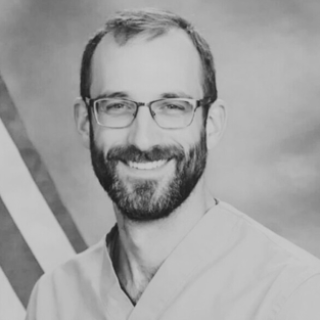Columbus “heat islands” are in full effect for yet another summer, but many in the community may not be aware there’s a burgeoning movement of young African American activists who are focusing their attention to climate change and seeking to reverse the damage it’s doing to our urban neighborhoods.
Kwesi Low is one of these activists (pictured above on left). He works with former Congressional candidate Morgan Harper to help run her grassroots organization Columbus Stand Up. The 41-year-old also helped run her 2020 Democrat primary campaign against Joyce Beatty, kickstarting his transition from purely community organizing to electoral politics.
Intriguing and eye-opening is how that primary in some ways mirrors the impact climate change is having on urban neighborhoods. Low admits Morgan underperformed in Ohio’s urban areas where support should have been overwhelming, but never materialized.
“Even going back to the issue of the primary, it’s very similar in that there are so many layers that are not a topic of conversation in general circles within African American communities,” he told the Free Press, “And that’s more so what we are trying to do and working on – creating that critical mass so more young people who are genuinely experiencing those heat island type of conditions will be the people who will create that critical mass and put pressure on AEP [American Electric Power] and government agencies who are supposed to be that buffer.”
In 2022, the Ohio Climate Justice Fund gave a modest grant to Columbus Stand Up, which led Morgan and Kwesi to initiate the “Stop AEP Rate Hikes” effort. AEP has made a dizzying amount of complicated rate hikes over the previous decade which have disproportionately affected marginalized community members who are desperate to keep the air conditioning going, if they have it at all. This is something Low is personally familiar with. He switched schools as a child ten times, and eventually dropped out of high school but obtained his GED. During this same time, he witnessed “a lot of tragedy” among family and friends.
“It’s hot, and they’re struggling to make ends meet,” said Low, who after a chance meeting with actor and civil rights activist Harry Belafonte, who passed in 2023, was inspired to earn a bachelor’s degree from Ohio State. “In one sense it hasn’t reached a critical mass from the people who are suffering the most from the conditions. At this moment, it’s really coming from people like myself who grew up in those circumstances.”
He continued, “How can people contextualize what’s happening locally, statewide, nationally and globally, that all impact our lives here, even if we don’t see it in the moment? And when it does happen, it’ll be too late to act for the people that are dealing with such imminent, today challenges – feeding themselves, feeding their children – they don’t have the opportunity to think about the larger ramifications.”
Columbus Stand Up recently held a community conversation called “Why Climate Justice Matters,” the first in a series of forthcoming climate change events. Harper remains steadfast it will take policy to force corporations and energy utilities to make necessary changes.
“Especially in Columbus there’s this emphasis on the individual,” she said at the first community conversation climate change event. “‘If I just recycle more,’ ‘If I stop using plastic bags,’ all of which I support. [But] we have to get more systemic solutions, and it really needs to target the people in the government who have the power to set policy. And so yes, people can lessen the impacts of climate change, but individual action is not going to be enough to address just how much we need to do to reduce emissions and decisions are government officials are making today at the local, state and national level that can shape the world for decades to come.”
Low says the Stop AEP Rate Hike initiative and coalition they formed is very central to the opportunity Columbus Stand Up sees as they move forward. More importantly, it’s a solution. In 2023 they gathered 1,000 signatures to oppose one of AEP’s recently proposed rate hikes – a 5 percent rate hike to begin in 2024 and further increases of 2 percent each year, for a total increase of nearly 14 percent by 2030. It was shot down by the embattled and much maligned PUCO [Public Utilities Commission of Ohio], currently dealing fallout from the FirstEnergy scandal.
“We like to believe we had a part in that,” said Low about PUCO rejecting the rate hike. “And at least for the time being to maintain the current electric rates that are already on the books. Even though those rates are a lot already and draining people’s bottom line. Another part of that is they have already proposed another rate hike. Ultimately, it’s an opportunity for an ongoing campaign.”
Another ongoing campaign is working to increase the tree canopy in Columbus, which is woefully short. Columbus’s canopy cover is at 22 percent compared to 40 percent for both Cincinnati and Pittsburgh.
“There’s lot of money out there that was allocated just to plant trees,” he said. “And a lot of people haven’t taken advantage of this. This is a really good way to get young African Americans involved in the energy and climate justice movement in a simple and tangible way. Plant a tree. And even attaching meaning to planting a tree. We have floated the idea of planting trees to honor those lost to gun violence.”
Also under the Ohio Climate Justice Fund are the Black Environmental Leaders (BEL) and Green Columbus.
“We are putting pressure on AEP and PUCO to make sure that the rates aren’t rising, or at least if they are rising, to mirror the wages people are earning,” said Low.
People need to have utility and energy justice, he adds. Again, he uses the phrase “critical mass”. It’s a potential solution to “Heat Islands” and for those community members who are having their power shut off during one.
“It’s a vehicle, a narrative, that resonates with people because it talks about people’s bottom lines and their ability to afford a lot of times what is lifesaving energy production.”



